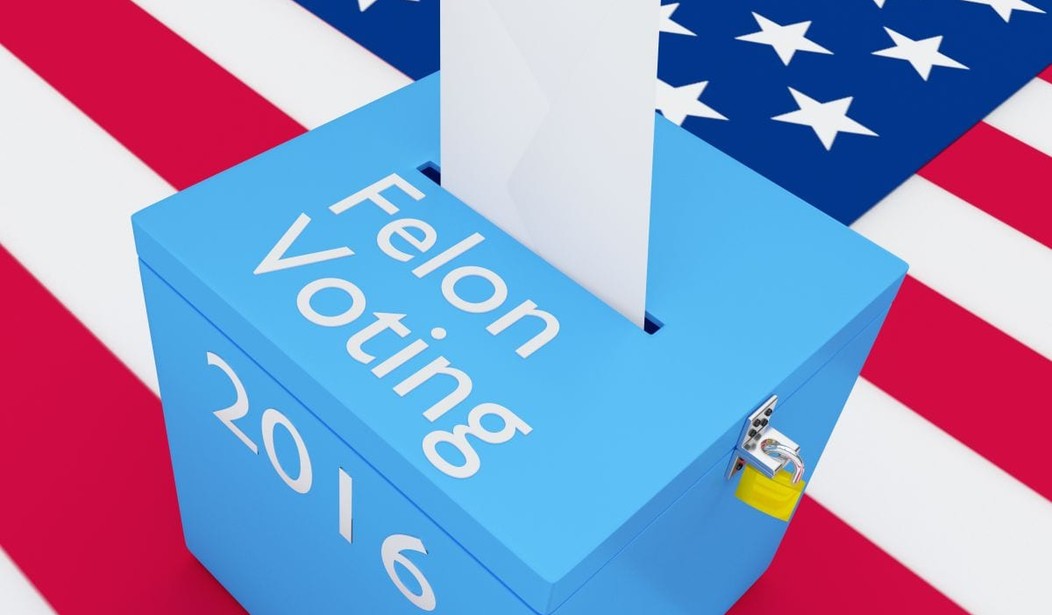The Virginia Supreme Court has ruled that Governor Terry McAuliffe’s executive order granting felons voting rights if they have completed their sentence is unconstitutional.
Writing for a 4-3 court, Chief Justice Donald W. Lemons held that the “assertion that a Virginia governor has the power to grant blanket, group pardons” is “irreconcilable” with the Constitution of Virginia.
The ruling is a political setback to Democrats and was issued in the critical state about an hour before Hillary Clinton announced she would choose former Virginia governor and current Sen. Tim Kaine as her running mate. The court’s opinion actually mentions Kaine, noting that when he was governor he contemplated a similar executive order but in the end was advised that he couldn’t issue such a sweeping action.
“Never before,” Lemons wrote, “have any of the prior 71 Virginia governors” issued such a clemency order of any kind, “whether to restore civil rights or grant a pardon, to an entire class of unnamed felons without regard for the nature of the crimes or any other individual circumstances relevant to the request.”
In a statement, McAuliffe vowed to sign nearly 13,000 individual orders to restore voting rights to felons, a process that some voting rights experts say could be cumbersome and complicated.
“I will expeditiously sign nearly 13,000 individual orders to restore the fundamental rights of the citizens who have had their rights restored and registered to vote,” McAuliffe said. “And I will continue to sign orders until I have completed restoration for all 200,000 Virginians. My faith remains strong in all of our citizens to choose their leaders, and I am prepared to back up that faith with my executive pen.”
The challenge was brought by citizens and Republican state officials who argued in court papers that Virginia’s Constitution forbid “this unprecedented assertion of executive authority.”
“The governor simply may not, with a strike of the pen, unilaterally suspend and amend the Constitution,” argued Charles J. Cooper, a lawyer for the petitioners. Cooper also emphasized that Kaine had concluded that Virginia’s Constitution “does not permit blanket restoration.”
McAuliffe’s action attracted immediate criticism when he issued the order in April. Writing in the National Review, Kevin D. Williamson called McAuliffe a “Clinton henchman.”
“Virginia is a swing state,” Williamson wrote, “and Governor McAuliffe is therefore determined to deliver it to her.”
This naked political gambit might still be successful if an appeal to the U.S. Supreme Court happens, but probably not in time for the 2016 election. Hillary Clinton will win or lose Virginia without the help of convicted murderers and rapists.
The question of whether felons should have their voting rights restored if they’ve been convicted of minor offenses is a complicated one. Are there “victimless” crimes? Are certain crimes punished unfairly? This is why as cumbersome and time consuming as it is, looking at each case individually is probably the right way to go. Blanket orders like those given by McAuliffe are best left to the voter, who would decide whether the Virginia Constitution should be amended.
Republicans in the state are breathing a sigh of relief. But to turn Virginia red again, it’s going to take getting GOP voters to the polls in numbers that Republicans haven’t seen in a decade.










Join the conversation as a VIP Member